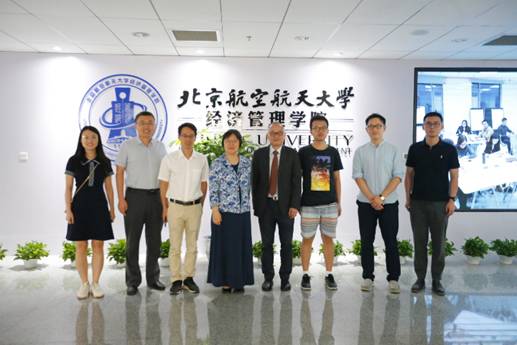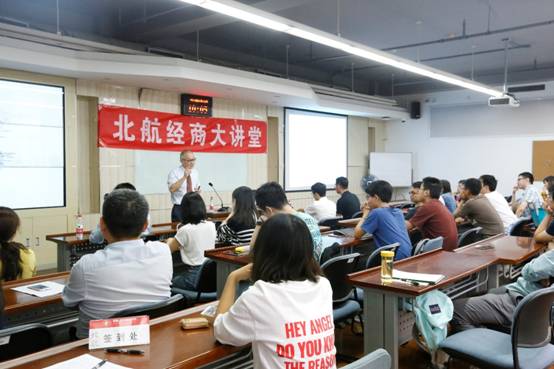On18th September, 2019, we welcome Prof. Anming Zhang to ourseries lecture on “Economics and Business”, as well as his speech on Impacts ofHigh-speed Rail on Airlines, Airports and Regional Economies: A Survey ofRecent Research.AnmingZhang is a Full Professor in Operations and Logistics and holds VancouverInternational Airport Authority Chair Professor in Air Transportation at SauderSchool of Business, University of British Columbia (UBC). He served as the Headof the Operations and Logistics Division, Sauder School of Business(2003-2005), and as the Director of UBC’s Centre for Transport Studies(2003-2004). He is President-elect of the World Air Transport Research Society(ATRS) and the President-elect of Transportation and Public Utilities Group(TPUG) of American Economic Association. The lecture was hosted by Dr. ChunanWang from School of Economics and Management at Beihang University.

In the following lecture,Prof.Anming Zhang has reviewedstudies on the impactsof air-HSR competition on airlines, focusing on the overall effects of parallelHSR services on passengers’ mode choice as well as on airlines’ flightfrequency, traffic volume, fares, service quality and market power. The modalcomplementarity and air-HSR intermodal services, together with the networkfeature of airline business, are also examined. The paper then reviewstheoretical and empirical findings on the impacts of HSR on airports andregional economies. Here, the main insights include: First, HSR can have atraffic redistribution effect on airport traffic; in particular, some primaryhub airports with good air connectivity may gain traffic while others may losetraffic. Second, to mitigate congestion at hub airports, policy makers mayconsider diverting some traffic to regional airports by promoting air-HSRintermodal services. Third, as HSR may stimulate long-haul / international airtraffic, its overall impact on emission reduction remains unclear. Finally,similar to the impacts on airport traffic, spatial disparity of economicactivities may also rise after the introduction of HSR. In general, thedisparity tends to rise between the cities with HSR and those without HSR, asthe former gets better accessibility. However, among the cities with HSRservices, the disparity between the large and small cities could increase ordecrease depending on several factors.
Duringand after the lecture, more than 40 scholars and students from BUAA SEM discussedthe key points of the talk with Prof. Anming Zhang, and also raised quite a fewrelevant questions,which provoke further thinking on the issue from both parties.
